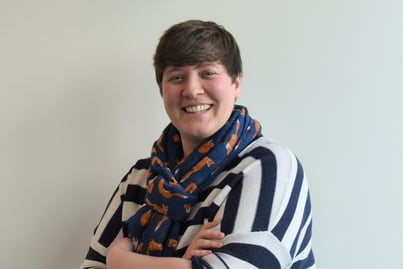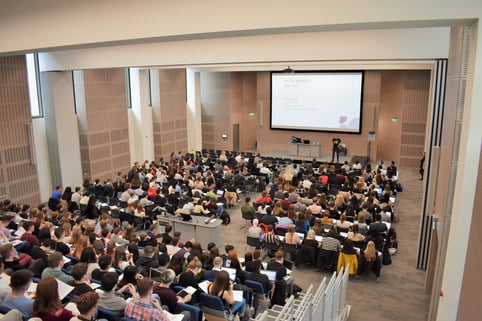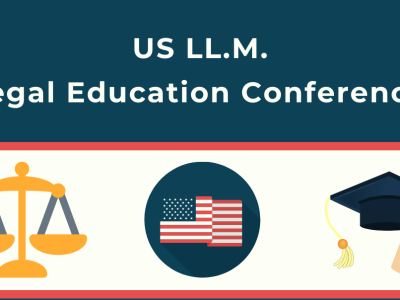5 things admissions officers at Trinity College Dublin look for in an application
Considering studying in Ireland ? If so, it’s likely that Trinity College Dublin has caught your eye as one of the most popular destinations for international students.
With its vast array of courses, incredible facilities and stunning historical campus, the university has an impressive amount to offer. But with real competition for places, what is it that admissions officers are looking for in prospective students’ applications.
I caught up with Trinity College Dublin to find out what they’re on the lookout for in their applicants at the moment. Here’s the top five things to keep in mind.

Table of Contents
- English Language proficiency is essential
- Your personal statement is important
- Take into account additional assessment criteria
- You must meet the minimum requirements for admission
- Undergraduate module grades are important for postgraduate applicants
1. English Language proficiency is essential
English Language testing forms an important part of the application process for international students. It’s important that the university knows that you will be comfortable and confident studying and being assessed in a different language.
Standardised English Language Proficiency Tests, either IELTS or TOEFL , and two academic letters of recognition are mandatory for both undergraduate and postgraduate applications at Trinity.
2. Your personal statement is important
Your personal statement is an integral part of your application as it adds character to your academic qualifications.
Trinity College Dublin assesses students’ motivation through the statement to make sure they have put in the required level of research to make an informed decision when applying.
Brushing up on your knowledge of the subject, on the things that interest and fascinate you about the course you’re applying for and the academics you’d most like to learn from are great places to start with this. Taking the time to make sure your personal statement is perfect is an important part of the process too.
3. Take into account additional assessment criteria
Some courses will require you to complete and excel in additional assessments, especially at postgraduate level.
At Trinity, this can include the GMAT, an online programming test for some MSc programmes and interviews either by video or phone.
Preparing for these additional assessments are an integral part of your application, and are used to determine your suitability for the programme.
4. You must meet the minimum requirements for admission
Unfortunately this is one of the most important parts of applying at a competitive university or for an in-demand course. Meeting the specific requirements for the programme of your choice is an essential part of your application.
Working hard and securing those grades, to match your passion for your course, is an important stepping stone to studying at Trinity College Dublin.
5. Undergraduate module grades are important for postgraduate applicants
Postgraduate applications are reviewed far more rigorously due to the competition for places. The standing of your undergraduate institution is taken into account when applying, using a range of rankings both domestically and internationally.
But performance in individual modules that are relevant to the programme you’re applying to are considered too. Your bachelor degree also needs to be equivalent to a 2:1 in Ireland.
Interested in studying abroad? Find out more about Dublin as a study abroad destination , and explore Trinity College Dublin’s courses on our website.
Guest Author | Study Abroad Expert
Disclaimer: The views and opinions shared in this site solely belong to the individual authors and do not necessarily represent t ...Read More
Top 10 English language schools in England
10 Tips for choosing the right university
5 Reasons why Industrial and Robotics Engineering at Gannon University is the perfect major
Should I study at a Russell Group university?
5 global universities to study social science degrees
Learn how to look after our planet with Trinity College Dublin’s E3 initiative

- Faculties and Schools
- Careers and Community
Trinity Business School Trinity College Dublin 2 Ireland
View the contact page for more contact and location information
Our Location
The trinity msc blog, what is a good statement of purpose.
/ by Ella Halfacree
When applying for a postgraduate programme at Trinity Business School, applicants must write a 500 word statement of purpose on their experience, career goals, and how the master programme they are applying for will help them achieve those goals.

Hi there, I’m Ella Halfacree, I manage admissions for MSc Finance, MSc Financial Risk Management and MSc Human Resource Management here at Trinity Business School. I’m not from Dublin originally, I’m from England but have lived in Dublin for 3 years and love it!
The more Original, the Better!
Many people ask if there is a template or a very specific way a statement of purpose (SoP) should be written but the beauty of it is that there’s no real science to it, in fact the more original and different the better! Think of it as a way to communicate to us and the rest of the academic selection committee everything you want us to know that isn’t covered by the application form as well as an opportunity to demonstrate your ability to write well.
Having said this – you may find the below tips useful.
Make it Relevant
Talk about why you are applying for a particular programme, what your academic and work experience is to date if you have either, what inspires you, and more!
We pride ourselves on creating a diverse microcosm of global business here at Trinity Business School and as such expect each and every one of our students to bring something to the course. Talk about how you think you would contribute, and don’t be afraid to let your passion and your personality show in your writing.
As admissions officers we receive hundreds of very high quality applications; with this in mind you should attempt to be as succinct as possible (don’t give us your life story) and try to make your statement of purpose distinctive. We have a limited number of places available so it’s worth putting effort into this in order to give yourself the very best chance of standing out.
The main thing I would say is don’t be too intimidated by this – it’s simply an opportunity for you to tell us in your own words why offering you a place to study with us here at Trinity Business School would be good decision.
Statements go astray once the author assumes that his or her purpose is to persuade us that he or she is highly qualified for admission. Instead of devoting your statement to a list of great things you have done, you should instead give strong evidence showing how the programme will really mesh with your interests and ambitions.
Pre-Application FAQs
We recommend that your Statement of Purpose be around 500 words. Many applicants pay no heed to that stipulation and submit something substantially longer. That is a mistake. Succinctness is a virtue in academic as in other writing.
If we see that you will take ten words to say something that another, equally qualified candidate will say in six, you might well find that the other candidate's statement will be preferred over yours.
We reasonably expect that your statement is an example of your writing at its very best. After all, if you are really serious about applying to our postgraduate programmes, then what we see in your Statement of Purpose is presumably the outcome of considerable effort. Poor writing and factual errors are very strong evidence that you are not yet ready for a postgraduate programme.

Tailor your Statement
Make sure to tell us why you are applying to Trinity Business School and why it would be an excellent fit for you. A statement of purpose can stand out by addressing that question directly and persuasively.

Tags: Admissions Process , Application , tips

Written by Ella Halfacree
Ella Halfacree is Student Recruitment Officer for MSc Finance, MSc Financial Risk Management and MSc Human Resource Management at Trinity Business School.
Lists by Topic
- Masters Programmes (33)
- Alumni (21)
- Careers (11)
- Current student (7)
- MSc Alumni (6)
- Careers Services (5)
- Insider (5)
- Application (4)
- Entrepreneurship (4)
- Admissions Process (3)
- Scholarships (3)
- Residency Week (2)
- students (2)
- Company Projects (1)
- Feedback (1)
Posts by Topic
Recent posts.

How to get into Trinity College Dublin in 2024

By Stephen Bergin steve_ - https://unsplash.com/photos/jEQydmwFlFMarchive copy, CC0, https://commons.wikimedia.org/w/index.php?curid=61859887
Trinity College Dublin's Reputation and Specialization
For many Americans, Trinity College Dublin is the top choice when considering universities in Ireland. This is not without reason, as it enjoys a stellar reputation in the US and is often seen as an Irish equivalent of Oxford or Cambridge . While Trinity is relatively younger than those institutions, it shares similarities with St. Andrews and stands as an exceptional university in its own right.
Trinity College Dublin's Global Appeal
A large aspect of Trinity College Dublin's allure lies in its international appeal. Approximately 28% of its student body consists of students from overseas, with many students taking advantage of Ireland's EU membership to pursue their education at Trinity.
Trinity College Dublin's Global Ranking
Trinity College Dublin holds the title of the best university in Ireland. On a global scale, it consistently ranks between 80th and 150th in the world, solidifying its position as a highly respected institution.
Trinity College Dublin's Notable Alumni
Trinity has produced some of the greatest minds in Irish thought, including a number of Prime Ministers, writers, and scientists. Among its distinguished alumni are renowned names such as Oscar Wilde, Bram Stoker, Jonathan Swift, and Erwin Schrodinger.
Trinity College Dublin's Specialized Programs
Despite its relatively smaller size, Trinity College Dublin excels in a range of subjects. Notably, its medical school and business program are considered as some of the best in Europe. Additionally, the history, law, and political science departments attract a significant number of American students seeking a high quality education.

By Diliff - Own work, CC BY-SA 4.0, https://commons.wikimedia.org/w/index.php?curid=42693401
Trinity College Dublin's Programs for International Students
Graduate programs.
An impressive one-fifth of Trinity's students are engaged in graduate studies, following the concise timeframe more common throughout Europe.
Postgraduate Programs
Trinity College Dublin has a thriving community of around 1,300 students involved in doctoral-level work.
Masters Programs
The university offers a diverse array of master's degrees, with many of the programs lasting just one year.
Medicine Programs
Trinity College Dublin permits undergraduate students to study medicine and encourages American applicants. Its medical school graduates have various options for residency, including the EU, UK, and North America.
Trinity College Dublin's Admission Requirements for US Students
To study at Trinity College Dublin, US students are required to submit either an ACT or SAT score. The required ACT score ranges from 27 to 32, and the required SAT score falls between 1250 and 1400, depending on the chosen degree field.
Trinity College Dublin's Acceptance Rate for International Students
Trinity College Dublin is committed to accessibility for international students, with a 37.7% acceptance rate. Given its high proportion of international students, the university provides consistent support through a dedicated team of international admissions representatives.
Is it Difficult to get into Trinity College Dublin for US Students?
Generally, Trinity College Dublin welcomes American students, but it's crucial for applicants to meet or exceed the requirements for their chosen courses. One requirement is at least three years of a foreign language, which may pose challenges for American students who have completed only two years of language study.
Trinity College Dublin's International Tuition and Scholarships
Scholarships for international students.
Trinity College Dublin offers some financial aid options for American students, primarily in the form of Federal loans. Unlike other EU countries, Irish universities determine EU tuition rates based on residency, so many EU dual citizens in the US may not be considered EU students for fee purposes.

Applying to Trinity College Dublin from the US
Trinity College Dublin employs a direct application process for students applying from the US. The application includes a 500-word personal statement highlighting "why Trinity" and focusing on career goals. Unlike UK universities, two letters of recommendation are required. Applications are due by the end of January.
3 Expert Tips on How to be Accepted to the Trinity College Dublin?
1. Apply Early: Due to its relatively smaller size and popular programs, such as business and psychology, filling up quickly, it is advisable to apply early, even as early as September.
2. Emphasize "Why Trinity": Demonstrating a strong understanding of Trinity College Dublin's unique identity and not treating it as an extension of British universities can significantly strengthen an application.
3. Consider Joint Honors: Some programs at Trinity allow for Joint Honors, similar to a double major. Familiarizing oneself with this option can help avoid complications later in the academic journey.
At Ivy Tutors Network, our ACT tutors and SAT tutors are fully committed to offering unwavering support and personalized guidance to students who are looking to apply to Trinity College Dublin. Our test preparation programs are customized to align with the specific requirements of TCD, ensuring that students are thoroughly prepared for the admissions exams. By choosing Ivy Tutors Network, you can approach the application and testing process with confidence!

Take a Diagnostic Exam in NYC
Start with a diagnostic SAT, ACT, SHSAT, ISEE, SSAT, TACHS, or AP test so you know where you stand and where you need improvement. Knowledge is power!
Related Blog Posts

Enquire Now
- About SI-Ireland
- New Delhi - Connaught Place
- New Delhi - Nehru Place
- New Delhi - Rajouri Garden
- Bengaluru - Church Street
- Bengaluru - J.P. Nagar
- Bhubaneswar
- Mumbai - Andheri
- All Global Offices
- Course Search
- Application Services
- Ireland Study Info
- University Profiles
- University Subjects
- Study Options
- Study Guide

Book your Free Consultation
Once your enquiry has been submitted, an SI-Ireland consultant will be in touch shortly to arrange your appointment.
Supporting Documents for Irish Universities
- Ireland Study Information
- Supporting Documents

University Supporting Documents in Ireland
Supporting documents are an essential part of your eligibility to study in Ireland . Admissions officers carefully review academic transcripts, language proficiency test results, personal statements, letters of recommendation, and other required documents to evaluate the qualifications, achievements, and potential of applicants.
Accurate and complete documentation is vital to ensure that the admissions committee is able to make a decision on your application smoothly. If you are visiting SI-Ireland for your free consultation , use this checklist to ensure you bring along all your documents so we can make the most of your appointment.
Required Documents
- Copy of passport/visa (if available)
- Academic transcript
- Certificate of graduation
- Certificate of English – IELTS/TOEFL/PTE Test/Other
- Personal statement
- Reference letters
- CV (if applicable)
Additional Documents
Previous education history.
- Previous CAS letter
- Confirmation of enrolment
- Previous visas (Visa stamp and biometric card)
Postgraduate
- Certificate of graduation/bachelor’s degree
PhD/Research
- Certificate of graduation/master’s degree
- Research proposal
Personal Statement
A personal statement is required when applying to Irish universities. In it, students are tasked with writing about what they hope to do on the course, what they hope to do after the course and why they are applying.
Reference Letters
References are usually written by someone who knows you academically or professionally. Most references will talk about you from a teacher's or supervisor's perspective: the way in which you interact with other students and your performance in classes and seminars.
Your reference does not have to be academic, but an academic reference is expected if you're studying or have recently completed school or college. Choosing the right referee is crucial for your university application. Things to consider:
- Choose an appropriate referee
- Print on official company or university letterhead
- Explain the relationship between you and the referee
- Express confidence that you will complete the course
- Don’t forget the signature of the referee
Study in Ireland
If you are unsure about what documents you need to successfully apply to an Irish university, arrange a free consultation today.
Search for your language school
Our language school search will help you find the right school for you. Search by country, city, course type, accommodation and more!

Arrange your free consultation
Once the form has been submitted, an SI-Ireland university consultant will be in touch shortly to discuss your enquiry.

Increase your chances of success when applying
SI-Ireland specialises in selecting the right Irish university for international students by reviewing your academic background, discussing your career goals and helping you apply. Our application services can help you achieve your dream of studying in Ireland.
06 June 2024
16 may 2024, 12 february 2024, 06 december 2023, 09 november 2023, 31 october 2023, 06 october 2023, 04 august 2023, 28 june 2023, 18 june 2023, 12 june 2023, 30 may 2023, 09 may 2023, 29 march 2023, 02 march 2023, 18 february 2023, 09 february 2023, 23 january 2023, 17 january 2023, 09 january 2023.
There are currently no events
Why Study at a University in Ireland?
- Affordable Universities in Ireland for International Students
- What are the Most Popular Courses in Ireland for International Students?
Best Universities in Ireland
The best young universities in ireland 2024.
- Why Study at the University of Limerick?
- Five Reasons to Study at University College Dublin
- Why Study at the University of Galway?
Irish Universities Courses
Top universities to study sociology in ireland.
- Where Can I Study Forensic Science in Ireland?
- In-demand Courses to Study at Universities in Ireland
- Ireland Universities Who Offer International Foundation Courses
" My consultant was very helpful and motivating. She helped me every step of the way, even when the deadline was so close. I could not have done it without her. I'd recommend this service to anyone interested in taking the stress out of applying alone. "
Brishti Basu Accounting and Finance, Trinity College Dublin

Leading Universities and SI-Ireland Partners

- © 2024 SI-Ireland
- All rights reserved
- Privacy Policy

*SI-Ireland takes great pleasure in announcing the opening of its new branch office at Nehru Place. This will enable us to deliver prompt and speedy services to the students in the vicinity who want to apply to Irish universities and colleges…
- Browse Law Schools
- LLM Articles
- LLM Info Events
- Law School Rankings
- Top 10 Lists
- LLM Scholarships
- LLM Discussions
- Application Tracker
- Advanced LLM Search
- UK / Ireland
- Australia / New Zealand
- Canada & Latin America
- Africa / Middle East
By Concentration
- General LL.M. Programs
- Alternative Dispute Resolution / Arbitration / Mediation
- American Law / U.S. Law
- Banking Law / Finance Law / Securities Law
- Business Law / Commercial Law
- Corporate Law / Company Law
- Human Rights
All Resources
Ll.m. applications: the personal statement.
-b3a0b.jpeg)
The personal statement can be a daunting part of the LL.M. application process—what to write, and how to write it? Here are some tips from admissions officials to help guide you through the process.
While it’s only one of many elements going into an LL.M. application, the personal statement can be a tricky one to master.
Many law schools are not very specific about the requirements for the personal statement, aside from word count. Georgetown University Law Center, for instance, asks applicants to describe their background, goals, and reasons for applying to the program; Stanford is looking for information about the applicant’s experience in legal practice, interest in graduate study, and professional goals.
“To be honest we are purposefully broad in our description because we want applicants to have the freedom to express themselves in whatever way they see fit,” says Justin Swinsick, director of graduate admissions at Georgetown.
“However, applicants should think about what they would say to the admissions committee if they were sat in front of them and had the chance to highlight the very best things about themselves and how the program and school will take them where they want to go.”
Other law schools are more explicit; Northwestern asks applicants to answer two essay questions, while Harvard requires a two-part statement—one addressing a theoretical framework or analysis to a current legal problem, and another that says something about the applicant’s motivations for the LL.M. and how it relates to his/her future plans.
This year, University of Pennsylvania also updated its personal statement requirement to include a bit more guidance, calling for a statement of no more than two pages, and specifically recommending that the applicant avoid repeating his/her CV.
For some schools, like Trinity College Dublin, the personal statement is optional; around 10 to 15 percent of each year’s pool of applicants sends one as part of their applications, according to Kelley McCabe, senior executive officer of the School of Law at Trinity.
“We’re looking for further insight into the applicant's current research interests and their career plans and goals for the future,” she says. “But we focus mostly on academic transcripts, the two academic references and the applicant's CV.”
“These documents give us a holistic picture of the applicant.”
Tackling the LL.M. personal statement
One of the cornerstone pieces of advice is: be specific. Admissions officers read many personal statements, and you want yours to stand out in their memories.
“Spend some time really thinking about why you want to get an LL.M.” and why that specific program fits this reason, says Elise Kraemer, director of graduate programs at UPenn.
Be honest and open about yourself; you could be moved to write about an inspirational figure in your life, an important event, or even about the school itself—which is fine, as long as you direct the statement back to you, Georgetown’s Swinsick recommends.
Kraemer agrees: “Although a personal and/or family stories can be moving, if you use one, be sure that it directly supports your application.”
Sometimes, a well-justified directness can pay off. Swinsick says one applicant start her statement by writing that she wanted to pursue an LL.M. in order to make as much money as possible. “This was certainly an unusual way to start and played into negative stereotypes of why one pursues legal education,” Swinsick recalls. But she went on to tie this into how she planned to leverage her legal studies, career and financial success into bringing help and visibility to problems plaguing her community in a developing country.
“It was very well written, highlighted her best qualities, and tied together why she wanted to pursue the program and why Georgetown’s program in particular would help her achieve her goals.”
Mistakes to avoid in your personal statement
While it’s a good thing to be personal, don’t overdo it either. “Some of the more colorful statements I have read entail very personal details that usually would only be shared with clergy, partners or close personal friends,” Swinsick says.
And polish is key: proofread, check your word limit, and make sure it looks as professional as possible. For Kraemer, a minor typographical or grammatical error—especially from non-native speakers—is not a deal-breaker, but a statement that is “poorly written or contains unprofessional content” can be.
“Take some time to work on it,” Kraemer says. “Don’t leave it to the last minute.”
And the resounding consensus from every law school is: always, always check the name of the school at the top of the page. Every year, every admission committee receives personal statements addressed to the wrong school. “I tend to be relatively forgiving on this one, but it never looks good,” Kraemer says.
How much does your personal statement matter?
The value of the personal statement can vary from school to school, but in general, a strong one can significantly bolster the merit of an application.
“It’s the only communication that we receive in the applicant’s own voice and is one of the best ways for the committee to ‘get to know’ the person applying,” says Kraemer. “It is not uncommon for a personal statement to have a significant impact on how we evaluate a candidate—a particularly strong or weak statement can be determinative.”
It can also afford an opportunity for the applicant to explain or put in context to the admissions committee a negative element of their application—a poor grade or language score, for instance. And this effort will show; an applicant that puts time and thought into their personal statement shows that they are serious about pursuing graduate legal education, Swinsick says.
“A personal statement is just that—personal,” says McCabe. “It gives the admissions committee a sense of who the applicant is so, when writing it, they should be true to themselves.”
LL.M. personal statement quick tips
- Be specific. Address why you want to get an LL.M. and your career goals.
- Be honest, about your background and the reasons for applying for an LL.M.
- Address any negative elements of your application, such as a low TOEFL or ITELTS score.
- Make sure to proofread your personal statement and check your word count.
- Make sure that you've addressed the statement to the right law school.
Related Law Schools

Virtual Event: U.S. LL.M. Legal Education Conference
Feb 19, 2024
More LLM News
More LLM Articles


10 Do’s and Don’ts for Your LL.M. Application
Jun 06, 2024
Navigating the LL.M. application process can be daunting. To help you stand out from the sea of applicants, we’ve compiled a list of 10 essential do’s and don’ts to guide you through the process.

USA Scholarships For International LL.M. Students
May 22, 2024
An LL.M. is a substantial investment, but many law schools offer generous financial aid.

From Algorithms to Antitrust: Study an LL.M. in Technology Governance
May 10, 2024
As technology reshapes our world, LL.M. programs are equipping lawyers with tools for the digital age.
More Articles
Related Top 10 Lists

More Top 10 Lists
- Trinity College Dublin (TCD)
- Penn Carey Law
- Northwestern - Pritzker

- Personal Statements from succesfull LLM applicants! Oct 12, 2023 2
- The Harvard Personal Statement Sep 12, 2022 0
- Personal statement guidance - Stanford LL.M. (LST) Jun 09, 2022 0
- Personal Statement A at Harvard Nov 21, 2021 0
- CAMBRIDGE LLM 2021-22: Personal Statement Jul 03, 2020 0
- LLM Personal Statement - Durham, Bristol, Kent, York Aug 21, 2017 0
- Personal Statement Advice Nov 24, 2016 1
- Personal statement Feb 03, 2016 1
- Personal Statements Feb 03, 2016 9
- Personal statement Aug 04, 2014 0

- Terms of Use
- Cookie Policy
- Privacy Policy
Information
- Featured LLM Programs
- MBA Programs
- Online MBA Programs
- Executive Courses
Search LLM Programs
Go to Advanced Search
Subscribe to the LLM GUIDE Newsletter
Receive the latest news and tips
© 2001–2024 Pritzwalks – LLM GUIDE – Master of Laws (LL.M.) Programs Worldwide
Trinity College Dublin: What it's really like
Find out more about trinity college dublin.

Want to study at one of the oldest universities in the English-speaking world… in a cosmopolitan city? Trinity College Dublin could be the place for you!
Trinity College Dublin at a glance:
| 1592 | |
| Dublin, Ireland | |
| Three years | |
| The college has three faculties: health sciences; engineering, mathematics and science; and arts, humanities and social sciences. | |
| 18,000 | |
| Students looking for an academic experience at a university that’s highly ranked in league tables, but also in the heart of a capital city. | |
| Students who would prefer to live in a bigger city where things are more spread out. |
Antonio, who works in Trinity College Dublin’s global engagement department, tells us what it’s like to study there.
What is Trinity College Dublin?
Trinity College Dublin, the University of Dublin, was founded in 1592 and is the oldest university in Ireland. We’re also ranked as the top university in the country according to the Times Higher Education Rankings 2023.
Trinity is one of the seven ‘ancient’ universities of the English-speaking world – alongside universities like Cambridge, Oxford, and St Andrews – but it’s the only one in the European Union.
We’re a medium-sized university with around 18,000 students, 12,000 of which are undergraduates. When you study here, you’ll likely have that feeling of being connected to history, but also of helping to shape the world we live in today.
Why apply to Trinity College Dublin?
A great reason to apply to Trinity is its academic reputation: you’ll be studying at one of the best universities in the world, so you can expect to achieve an excellent degree that is highly valued by employers.
Another reason is that Ireland is considered the ‘Silicon Valley of Europe’. Some of the world’s biggest IT companies like Google, Facebook, and Twitter, and pharmaceutical companies like Pfizer, have their headquarters in Ireland — so you’ll be on the doorstep of some amazing employment opportunities.
If you come to Trinity as an international student, you’ll of course have that typically ‘Irish’ experience – Irish people being considered some of the friendliest people in the world – but Trinity is actually the 12th most international university in the world too. 120 different nationalities are represented on campus, with 27% of our students from outside of Ireland, so you’ll likely meet someone from where you’re from. 40% of our lecturers are also international, so we have the most international academic body of any university in Europe.
Who isn’t the right fit for Trinity College Dublin?
If you’re looking for a really big city and a commute, Trinity might not be the place for you. Whilst Dublin is a very cosmopolitan city, there are only 800,000 people living in the city itself, so it’s a very manageable size. If you’re also looking for a more isolated, self-contained campus, Trinity might not be for you, as it’s so closely connected to the city centre.
Any application tips?
You can apply to Trinity with your predicted grades and get a conditional offer. If you’re a non-native English speaker, you may need a certificate to prove your English proficiency as well. We also ask for two references, and for a 500-word Personal Statement, where you can show us why you’re a good fit for Trinity and for the programme of your choice.
I would say your transcript or predicted grades are most important, because Trinity is a very academic university. But otherwise, remember to apply as early as possible. Applications for most of our programmes open in November and close in June, but we assess applications on a rolling basis, so the earlier you apply, the better your chances of getting in. Offers are made on a first-come, first-served basis.
What’s the location like?
The location of Trinity College Dublin is unusual, in that it’s an entirely historic campus but set in a capital city centre.
As soon as you leave the campus, you’ll find yourself in the heart of the city. So you can enjoy the exciting restaurants, bars, night clubs, museums, galleries, and festivals that Dublin has to offer – all within a short walk. Dublin’s airport is just a 30-40-minute drive away, which is particularly useful if you’re an international student.
We are partnered with Columbia University, so we also offer twelve degrees where you can spend two years studying in New York! What facilities does Trinity College Dublin have to offer?
Whilst it might look historical at a glance, Trinity offers state-of-the-art facilities designed for conducting research. For example, one of our newest buildings, due to open in September 23/24, will be a purpose-built research building to support students as part of our E3 project: those studying environmental science, engineering, and emerging technologies.
When it comes to facilities you can enjoy in your free time, we have the biggest gym in Dublin, as well as theatres and galleries you can visit on the campus itself.
We’re also renowned for our careers service, and ranked top in the world for producing entrepreneurs. Our Innovation Centre, where you can put forward an idea for a business, is open to all students regardless of the subject they’re studying. Here you’ll be supported to develop your idea, and if it’s considered especially strong, you could be given a place in our incubator, where you’ll get funding to start your own company.
What is the accommodation like?
When it comes to accommodation, Trinity gives priority to international students, particularly those on foundation courses or on their first year of undergraduate programmes.
There is university accommodation both on-campus and nearby in the city, around a 15-minute bike ride away. Typically, you’ll live in flats of around five students, which have either ensuite or shared bathroom facilities. You’ll also share a living space and a kitchen.
In their second year, because the university is so centrally located, students tend to look for their own accommodation nearby and share houses or flats with their friends.
How does Trinity College Dublin meet the needs of students with different accessibility requirements?
Inclusivity is and always has been very important at Trinity; in fact, the first woman to get a degree from one of the ‘ancient’ universities of the English-speaking world studied here, and female students represent the majority at Trinity.
If you have a disability or any learning differences, we encourage you to contact our disability support team before even applying. The team will be happy to chat to you about meeting your accommodation, study, and examination needs.
Once you’re here, the team also offers confidential daily drop-in sessions so you can pop in any time if you have any worries or questions.
Want to explore more Irish universities? Remember, Unifrog’s Shortlisting tool can help you put together a list of great potential courses.
Latest posts:
Unifrog’s virtual work experience week (1st-5th july 2024) faqs.
1st May 2024
Skills development workshop and insights day with the British Army
26th April 2024
The student aspiration gap: what it is, why it matters, and how we fight it
29th January 2024
Counselor spotlight: Augusto Neto at St. Paul's School, Brazil
8th January 2024
How Bloomberg is getting closer to disadvantaged students with Unifrog’s help
4th January 2024
How to create a gold-tier early careers strategy
21st December 2023
Unifrog World of Work Conference round-up
9th November 2023
10 years of Unifrog
6th November 2023
How to create an inclusive recruitment process
4th October 2023
Unifrog and Ford collaborate on skills development workshop for students
27th September 2023
Privacy & Terms
International schools
UK schools + colleges
Universities
Case studies
TCD Personal Statement?
Hi all, I’m well aware that the Republic of Ireland is not a member of the United Kingdom, but I couldn’t find anywhere better to post this. I’m applying to Trinity College, Dublin as an American and am struggling a little bit with writing my Personal Statement. I’ve never really had to write a Personal Statement before, and so I’m struggling with how exactly to write it. Is it supposed to be formal? Do I mention my qualifications at all? Is it supposed to be anything like the Why St. Andrews essay on the Common App? Any tips for writing the PS and tips for applying would be appreciated please! Have a nice day!
You might find this helpful:
https://www.tcd.ie/Careers/assets/pdf/student-pdf/personal-statement-guidelines.pdf
It is for students applying to grad programs, but you won’t go wrong following the basic outline. Be sure to fit in elements that would show why you are looking to go Ireland, and that demonstrate some maturity (ie, “I’ve always loved Ireland and all things green and my mothers maiden name is O’Kelly and I can’t wait to…” will not make you look like a student who is making a serious academic choice, and who is ready to do the real work of moving to a new country and new educational system as an adult)

- Study Abroad Get upto 50% discount on Visa Fees
- Top Universities & Colleges
- Abroad Exams
- Top Courses
- Read College Reviews
- Admission Alerts 2024
- Education Loan
- Institute (Counselling, Coaching and More)
- Ask a Question
- College Predictor
- Test Series
- Practice Questions
- Course Finder
- Scholarship
- Netherlands
- New Zealand
- Study Guide
Statement of Purpose for MS in Ireland: Format, Sample & Writing Tips

Collegedunia Team
Content Curator
Statement of Purpose for MS in Ireland
Always remember that like a thumb impression, your SOP for MS in Ireland should also be unique to you. This document is going to paint your picture in front of the selection committee. Your SOP for MS in Ireland must reflect your skills and should also give a glimpse of your future goals. Remember that admission is a competitive platform where this document can help all study abroad aspirants to beat others.
- Always check the requirements of the chosen course carefully before writing the statement of purpose for MS in Ireland.
- Do not forget to have a brainstorming or planning session before starting to write your SOP for MS in Ireland.
- Make sure that you are not writing a resume but a statement of purpose so you need to include the topics accordingly.
- Write about your background very briefly and then mention your academic and professional as well as co-curricular achievements, again briefly.
- The statement of purpose for MS in Ireland should describe your academic interests and your purpose and objectives for choosing advanced study in the area.
- Also mention why you got interested in this subject and what made you choose the advanced studies option in the course.
- Always remember that you should also add your short term and long term goals.
SOP for MS in Ireland: Requirements at Top Universities
Statement of Purpose for MS in Ireland is almost a compulsory requirement for admission to postgraduate teaching as well as research courses. Institutions in Ireland are quite particular in specifying the subject matter any essay should cover. It is advisable for the applicants to visit the site of the chosen institution and search for the requirements thoroughly before starting the admission application. Requirements specified by some of the top universities in the world for SOP for MS in Ireland are listed below:
| Institution | Requirement |
|---|---|
| 500-1000 words SOP | |
| SOP of 600 Words | |
| SOP detailing what attracts you to that subject area, how your studies and/or work experience has influenced you, career plans, any work experience, etc | |
| SOP recommended | |
| SOP having academic abilities, skills, and knowledge, interest in the subject matter knowledge about DCU’s expertise in the subject matter, goals and aspirations, etc. | |
| Statement of around 500-800 words |
Sample Statement of Purpose for MS in Ireland
I come from a farming family in Uttar Pradesh, India, and I'm the first in my family to pursue higher education. It all began with a conversation with my high school teacher about solar power, where I questioned the iron mesh over solar panels. This curiosity set me on a journey into STEM subjects, particularly Physics and Engineering. I realized that a Bachelor's in Technology was the right path to explore my passion. During my college years, I immersed myself in seminars, workshops, and practical training, including a valuable six-month internship. This hands-on experience showed me how technology drives everything from production to marketing, fueling my interest in advanced research in this field.
Your institution's Master's program in XXXX aligns perfectly with my ambitions. The program's research-focused nature will provide me with the necessary skills to innovate within the technology business sector. The scope is broad, but I recognize the importance of focused expertise for success. This advanced study is my pathway to excel in this ever-evolving field.
My aspirations extend beyond personal success. I aim to integrate technology into agriculture to not only support my parents but also inspire others to adopt efficient farming methods. While my academic record is strong, I've also found joy in extracurricular activities like football, cricket, and public speaking. Achieving success in state-level cricket while actively participating in debates and declamations has shaped me into a well-rounded individual.
Professionally, I've excelled too. In a recent role, I was tasked with streamlining operations, resulting in a 20% efficiency increase. I've consistently exceeded targets, boosting team morale and contributing to a 15% rise in overall productivity. These accomplishments underline my dedication and drive.
In the short term, I aim to develop sustainable technology solutions for rural communities. My long-term goal is to lead a technology-driven initiative that positively impacts the lives of millions. The holistic approach of your university resonates with me, making it my top choice. The dynamic faculty and innovative research opportunities are tailored to my aspirations. Joining your institution is not just about education; it's about becoming part of a community that fosters growth.
I fulfill all the eligibility criteria and now look forward to getting admission in your esteemed institution to brighten my future prospects.
Tips for Writing Statement of Purpose for MS in Ireland
There are a few tips that can be followed to have an impressive SOP for MS in Ireland to accompany your admission application:
- The SOP must not include any jargon and grammatical errors.
- The SOP should not be too short or too long.
- Wherever a word limit is given, try to adhere to that. Generally speaking, it should never be more than 2 pages.
- Never write a story in the SOP. It is your life from the academic and professional angle talking about your future aspiration keeping in mind the previous achievements.
- In the SOP for MS in Ireland, never repeat your CV details or achievements that are mentioned somewhere else in the application.
- Always write an easy-to-understand document but the tone should be official and the language should be academic.
- Brainstorm, plan, and go through some samples before you start writing the SOP. If the institution specifies certain points to be included in the document, make sure that you have done so.
- Support the SOP with LOR for MS in Ireland
- Try and keep the introduction impression keeping in mind what the first impression you would like to give to the selection committee.
- Always highlight your unique points and stick to the course in question. Write all those relevant things that can impact your admission outcome.
As a statement of purpose is a unique personal statement, never copy it from anywhere and avoid taking someone’s help to write the document. The more reflection it will provide about you, the more accurate result it will be able to deliver. Always remember to start early and try to keep your statement of purpose for MS in Ireland ready before you start your admission application.
FAQ’s
Ques. Is it possible to take professional help for writing SOP for MS in Ireland?
Ans. It is possible but not advisable to take outside help for writing an SOP for MS in Ireland. It is a statement about you and you should be able to write it comfortably. If needed, read some samples or watch some videos to take guidance.
Ques. How do I start my SOP for MS in Ireland?
Ans. There are various ways to start a statement of purpose for MS in Ireland. You can start with your future vision, or your achievements, or the early educational life. The choice is entirely yours how you want to tell your academic journey.
Ques. What should I write in the Statement of Purpose for MS in Ireland?
Ans. Generally, any SOP details what attracts you to a particular subject area, how your studies and/or work experience has influenced you, your career plans, etc.
Ques. Do I need to attach work experience with SOP for MS in Ireland?
Ans. The statement of purpose for MS in Ireland does not require any enclosures. The only requirement is that the facts mentioned should be verifiable if needed.
Ques. Are there different types of SOPs for MS in Ireland?
Ans. The statements of purposes are unique personal statements of each applicant written by them. So there are no types of SOPs for MS in Ireland but they are all separate from each other.
Ques. Why do we consider SOP for MS in Ireland an important document?
Ans. It is a document that presents your skills and potential just like you are giving a face to face interview and has about 30% weightage in making admission decisions; hence is considered important.

More Articles in this Category

Application Process for Universities in Ireland
The application process is based on undergraduate and postgraduate admissions for EU/EEA (European Economic Area) and Non-EU countries.

SOP for Ireland: Format, Samples & Guidelines for Student Vi...
An SOP for Ireland is not limited to just admission to Irish universities. Applicants are required to submit an SOP for Ireland visa and university. A...

LOR for Ireland: Sample, Guidelines, and Requirements at Top...
Letter of recommendation for Ireland generally comprises of 2 academic reference letter, submitted by your teacher or academic supervisor.

SOP for MBA in Ireland: Format, Samples & Writing Tips
Ireland serves as a home to various top-ranked universities offering an MBA and, hence, requires a “statement of purpose” or “personal statement”. It ...

MBA Admissions in Ireland: Deadlines, Intakes, Interviews, D...
Home to top colleges like UC Dublin, Trinity College, etc, Ireland attracts a large number of international student population. MBA in Ireland gains t...
SUBSCRIBE TO OUR NEWS LETTER

Get the Reddit app
TC Spirit!!!
TCD's Personal Statement
Hey all, I'm an international student applying to Trinity, and I'm looking for a bit of guidance on how to write Trinity's essay. I have several personal statements that I've used for other schools, but I'm not sure exactly what they're expecting. Should I write a sort of narrative, with a lesson in it? Or should it be more of a letter explaining why I'm interested and what I bring to the table?
Thanks for any help you can provide
Personal Statement for Trinity College Dublin
Quick reply, related discussions.
- Trinity College Dublin Accommodation
- Trinity College Dublin vs University of Nottingham for Msc Business Analytics
- Decision from Trinity College Dublin (medicine)
- Trinity Dublin as a UK student
- Which university to choose
- Applying to medicine in Ireland
- Student Accommodation-Dorset Point in Dublin
- Edinburgh v TCD
- Trinity College Dublin
- Medicine in Trinity college Dublin
- Trinity College Dublin vs Galway University
- Offers of MS Finance
- RCSI vs Trinity Medicine (Ireland)
- what are my chances of getting into trinity college, cambridge to study maths?
- Dentistry in Ireland
- Which university is good for Computer engineering
- Best university for English literature in Ireland
- Postgraduate application
- Mathematics at Cambridge admissions process
- UCL MSc Urban Economic Development
Last reply 11 hours ago
Last reply 1 day ago
Last reply 2 days ago
Last reply 4 days ago
Last reply 5 days ago
Last reply 6 days ago
Last reply 1 week ago
Last reply 2 weeks ago
Last reply 3 weeks ago
Articles for you

Can you get into university if you’re studying Btecs?

Will artificial intelligence put legal graduates out of work?

Why industry placements are so important for business students

You don’t need to take a law conversion course for the SQE… but here’s why you should
Trinity College Dublin, The University of Dublin

Trinity Search
Trinity menu.
- Faculties and Schools
- Trinity Courses
- Trinity Research
Trinity Careers Service, Trinity Teaching and Learning
You are here Students > Applications and interviews > CVs
Your CV is an essential part of any application process as it showcases your qualifications, skills and experience. On this page you will find information about how to present and structure your CV, as well as a range of sample CVs.
Essential Elements of a Strong CV is a new interactive presentation that covers the essential steps for you to create a great CV. In the presentation, you will be guided through the S.T.E.P.S. approach to creating a strong CV – Structure, Targeted, Evidence, Professional and Succinct.
Presentation
A standard CV in Ireland and the UK should not exceed two A4 pages and should be presented in a concise and easy-to-read manner. Choose accessible language - if you are coming from a science or technical background choose simple language that matches the terms in the job description, as the person in HR reviewing your CV may not come from the same background.
Your CV is your first point of contact with an employer, and it’s important to make a positive first impression. Employers receive a high volume of applications, so their first job is often to find reasons to dismiss applications and have less applications to read through in detail. In a competitive market, your CV could be put into the “no” pile for reasons which may seem minor but are in fact incredibly important. For example, you need to make sure that there are no spelling and grammar mistakes, and to spend time on the overall look of your CV so that it is easy for an employer to navigate. Misspelled words, poorly written content and an untidy layout all indicate a lack of attention to detail and professionalism. Take the time to go through your CV in detail and make sure it creates a positive impression. As it takes about 6 seconds for employers to decide whether they will look into your application further, you need to include your unique selling points on first page of your CV to attract employers’ attention.
What should you include in a CV?
An effective CV is one that showcases your skills, knowledge and experience that are relevant to the role. See ‘ What type of CV should I prepare? ’ for more detailed content.
The following sections should be included
Personal details
Full name, current address, accessible contact number (usually your mobile number), a professional email address and your LinkedIn profile URL, or your Github if relevant.
Career Objective / Personal Profile (optional)
In this section you should reference your relevant experience briefly including highlighting key skills, and confirm your interest in a particular job or employment sector. This section should not be more than 4 or 5 lines long.
Skills Profile (optional)
Your skills profile should include a list of concrete skills, such as language or technical skills. Avoid listing generic skills such as team work and communication skills unless you also provide evidence of where these were developed.
Education and qualifications
- Your education should be presented in reverse-chronological order. If you are looking to show your in-depth knowledge about any particular subject, include your projects or thesis which evidence this.
- Show your overall grades and the breakdown of subjects within your degree relevant to your application, but don’t include all your subjects. List the four or five modules that are most relevant to the role.
- Leave out your Junior Certificate.
- Include your Leaving Certificate but do not include information about points achieved or individual subjects taken.
Employment history
- Your experience should be presented in reverse-chronological order.
- Where relevant, you can split your experience into 2 sections: Relevant Work Experience (highlight first) and Other Work Experience.
- Include employment dates, your job title and the name of the organisation you worked for in each role.
- Emphasise both what you have learned and how you have made a difference to your employer, and talk about achievements at the workplace. Quantify where possible (e.g. “Taught English to groups of up to 25 adult learners”,
- Emphasise the skills gained in each job and make it clear where you demonstrated these skills.
Volunteering
- Your volunteering experience should be presented in reverse-chronological order.
- Include dates you were involved, a role title, and the name of the organisation for each position.
- Your experience whilst volunteering may not be directly related to your future job. If you have demonstrated transferrable skills in your volunteer work make sure to explain this, with supporting evidence.
Interests and activities
Mention any positions of responsibility that you have held in societies or clubs in College or in any outside organisations. Outline any tasks you undertook which provide evidence of skills development.
You do not need to provide your referees on your CV (unless specifically asked to do so), you can include “Available upon request” in this section.
However referees listed on a CV where space allows adds weight to a CV. Get permission before you use someone as a referee and include referees name, job title, employer and location and indicate “referee contact details available upon request.”
We advise international students to list an Ireland based referee (e.g. a Trinity academic or boss from part time or volunteering experience) as it can be helpful to localise yourself to a prospective employer.
For jobs in the private sector you can include academic or work references, for recent graduates include one of each. For postgraduate programmes you are likely to require two academic referees.
Applicant Tracking Systems
It’s important to be aware that when you apply for a job, the first screening of your CV might be done by an Applicant Tracking System (ATS). These systems play an important role in the initial screening process, so understanding their nuances can significantly boost your chances of progressing through the recruitment stages.
An ATS will scan your CV for specific keywords and phrases aligned with the job description. Tailoring your CV to mirror the job requirements is key – incorporate job and industry-specific terminology and include both hard and soft skills mentioned in the job posting to score well in the initial screening. See our advice on tailoring your applications in our General Tips section for more information on how to do this key piece of developing strong applications.
Consider the formatting of your CV. ATSs can struggle with intricate layouts, graphics or unconventional fonts. Use a simple and clean format with standard fonts to ensure accurate parsing of your information by the ATS. There are a lot of CV templates available online which can look very attractive, but ATS can struggle to parse the information in these templates. Stick to commonly used formats like .doc or .pdf, as some ATS systems may face difficulties with less conventional file types such as Overleaf or Canva CVs. ATS tend to “read” information in your CV from left to right and from top to bottom, so use plain formatting and avoid columns, graphics, or tables in the background. They are also looking to calculate your experience so include the full span of your experience e.g. May 2023-August 2023 instead of Summer 2023, and give the full length of your degree as opposed to just the year when you will complete it.
Websites such as jobscan.co and resumeworded.com enable you to check if your CV can be accurately parsed by ATS for free. When using these websites you might want to remove your name and contact details from the document before submitting to protect your personal information. While optimizing your CV for ATS is essential, don't solely rely on it. Human recruiters will also review your document. Strike a balance between ATS optimization and crafting a compelling narrative about your skills and experiences to make your CV effective for both automated and human aspects of the hiring process.
CV Samples: Chronological, Academic, Technical, Resume and Skills-based CVs
You should use a format that best reflects your experience and skills and suits the job you are applying for. The 4 main types of CVs are:
- Chronological CV A chronological CV summarises your experience and background, usually, in 2 pages. List duties, achievements and skills gained after each work experience or educational qualification. Use active verbs e.g. led, completed, achieved, awarded etc.
- Academic CV Academic CVs are used in applications for research, teaching or lecturing positions. This type of CV often includes details of research interests, research experience, funding, teaching experience, publications and conference presentations
- Technical CV Technical CVs should highlight your technical skills in a skills section, and then demonstrate where you have applied these skills in projects and other experience. These CVs are typically one page, or 2 pages maximum.
- Resume - US style CV All relevant information is presented on one page, including: education, projects, work experience and other extra-curricular activities. This style of CV is also the preferred format for applications to investment banking firms.
- Skills based CV This type of CV is best used in cases of career change. A skills-based CV helps to categorise your work experience and education according to your skills and capabilities.
Europass CV
In some instances a job advert may specify that applicants use the European or Europass CV format. This standard format CV has been developed as part of the Europass European initiative, to help people make their skills and qualifications clearly and easily understood in Europe, thus facilitating the mobility of both learners and workers. View the Europass CV example .
CVs when applying overseas
Recruitment practices are different in each country, and if you are applying overseas you should familiarise yourself with the standard application procedures and CV format and content in that country to increase your chance of success.
Common CV mistakes
- Generic CVs – sending the same, untailored CV to every role to which you apply won’t impress your potential employer. It is important to highlight relevant work experience, education and skills for each role. Familiarise yourself with the job description and incorporate some of the employer’s language from the job description when referring to skills in your CV to show relevance.
- Sending your CV – make sure that you check your CV and give an appropriate name to your file when sending your CV as an attachment.
- Spelling and presentation – Think of your CV as being your first assignment sent to a potential employer - you want to do it well. Look at your format, structure and spelling. It is worth asking a friend, family or Careers Consultant to have a look at it to ensure you are creating a strong impression.
Please note that your Careers Consultant can give you feedback on the overall presentation of our CV as well as the content, but that we do not offer a proof-reading service.
Gaps can best be described as times on your CV when you were not in formal education or employment. These can range from several months to several years, be voluntarily or involuntarily, and can be for any number of reasons, such as ill health, family matters or travel for example.
The Coronavirus pandemic may also have disrupted your career plans and left you feeling like there are gaps on your CV. Perhaps your internship was cancelled, you were let go from your part-time job or didn’t get a position you wanted.
If you are currently unemployed and job searching there are things that you can do to fill the time between jobs . Opportunities such as volunteering, charity fundraising, online courses, adding to your hobbies and finding new interests are all valuable talking points when you meet with employers. They can also provide evidence of developing your soft skills and showing your potential for future leadership.
If you are currently experiencing a gap in education or employment, we advise the following:
- Focus on what you can control - a gap only becomes a problem when it affects your mindset and confidence. Focus on what you have done, your skills and competencies. Use your gap time to prepare to return to your career journey.
- Take the initiative - consider expanding your knowledge through online courses, visit Springboard courses , Fetch courses and HEA and check out short accredited learning experiences such as Trinity's microcredentials .
- Start networking – try to build contacts in areas of interest, get active on Linkedin, attend relevant webinars and events and consider seeking a mentor .
- Be open and honest about your gap time. Include a note in your CV about the reason for your gap and consider expanding on this in your cover letter where relevant. You could consider preparing using a functional CV approach to highlight your skills and experiences. The suitability of this approach depends on your personal situation so we would recommend you come and talk to your Career Consultant to figure out the best type of CV for your job search.
- During interviews be ready to explain your circumstances and display how you have shown key skills such as resilience, self-management and initiative taking during this time.
- Check out the Evolve page on our website for a range of online supports.
- Every situation is different and your Career Consultant is experienced at working with people who have gaps on their CV. Book an appointment with your consultant to talk through your circumstances and to find the best way to approach this in your job search.
Some common reason for CV gaps and how to explain them
Explain how you used your time given your limitations due to illness. Perhaps you did some voluntary work or were involved with a hobby? Did you keep up to date with industry trends and news? Confirm that you are ready to return to work. Show how you are a good fit for the role in question.
Example: I was unable to work/study due to an illness. I’m better now and ready to restart my career. I feel I am a good fit for this role because….
Family caring responsibilities
Explain that you were needed to deal with a family situation but that has now resolved itself or you have put other supports in place. State that you are now ready to give your full commitment to work and reiterate your skills and experiences as they relate to the role.
Example: I had to take some time to care for a family member. I’ve now put some extra supports in place so that I can fully refocus on my career. I believe this position would be a good fit for me because…
Focus on why you decided to travel and the value of this experience. Emphasise your increased cultural awareness and new perspectives gained. Be clear that you are ready now to resume your career.
Example: I decided to take some time out to travel so I could expose myself to new cultures and places. During my time away I learnt many valuable lifelong lessons. I’m now ready to focus on my career and believe this position would be a good fit because…
Coronavirus pandemic affected an Internship, Placement or Job Opportunity
Acknowledge the placement/internship/job you were given and the unfortunate circumstances that meant you couldn’t avail of the opportunity. Show that you used this time to do other things and keep abreast of developments in your area of interest. Remain positive in your explanation of this gap.
Example: I was lucky enough to be selected for an internship in X company for the Summer of 2020. Unfortunately, due to the Coronavirus pandemic this was cancelled. At the time I was very disappointed, but on reflection I can see that it improved my resilience to deal with unexpected and challenging situations. I used this time instead to volunteer with the local Club who delivered groceries to the elderly and found this to be a very rewarding way to spend my time by helping others through difficult times.
Disclosing a disability
Information about disclosing disability can be found here.
CV and LinkedIn profile clinic
In these clinics you can reserve a bookable slot using MyCareer.
A team of PhD students, who are fully trained CV Reviewers, offer a weekly clinic to review your CV, cover letter or LinkedIn profile. This is a 15 minute meeting with a CV Reviewer who will review one document and give you feedback. This service is ideal if you want a quick general review of the layout and content of one of these documents and tips on how to target your CV for specific roles. Usage is restricted to once a month during busy periods .
These clinics are held in-person in the Careers Service and virtual via MSTeams. Check the location when booking your place. Download the MS Teams desktop app from https://teams.microsoft.com/downloads - this is necessary to review your digital CV, Cover Letter or LinkedIn Profile.
As we limit CV Clinic bookings to one per month , if you miss your booked slot you will be unable to book into another clinic for the next 28 days . We would ask that if you can no longer attend your booked slot that you cancel it on MyCareer with as much notice as possible to give another student the chance to avail of this slot.
View session times on MyCareer

- My Application
- Apply
- Courses
- Handbook
- Contact
Demo Application

- Demo Shortcuts
- Payment Page
- Receipt Page
- Qualifications
- Qualifications (LCE Only)
- Mature Section
- Log-in Page
- Account Home Page
- Add Courses (Level 8)
- Change Courses (Level 8)
- Course with Subject Option
- Add Courses (Level 7/6)
- Change Courses (Level 7/6)
- Select Disability
- SIF/DARE form
- Select HEAR

- DCU Open Days
- Undergraduate
- Postgraduate Hub
- DCU Micro-Credentials
- DCU Connected
- Scholarships
- Admissions Information
- Accommodation
- Graduate Studies Office
- Student Recruitment
- Research at DCU
- Research Impact
- DCU Invent - Technology Transfer
- Life Sciences Institute
- INTRA Internships
- Courses with INTRA
- Engage with DCU
- Office of the Executive Director of Engagement
- Arts and Culture
- Engagement Governance
- Age Friendly University
- DCU Placement
- DCU Educational Trust
- DCU International Academy
- Centre for Talented Youth, Ireland
- National Institute for Digital Learning
- DCU Campus Store
- Changemaker Schools Network
- Counselling & Personal Development
- Student Health Service
- Student Policies
- Financial Assistance Service
- Student Advice and Learning Skills Centre
- Accessible Campus
- Transcripts
- Orientation
- Examinations
- Examination Results
- Fees Information
- Academic Calendars
- Information Systems Services
- DCU Students Union
- Clubs & Societies
- DCU Autism Friendly
- Disability & Learning Support Service
- Mature Students
- Careers Service
- DCU Business School
- DCU Institute of Education
- Faculty of Engineering & Computing
- Faculty of Humanities & Social Sciences
- Faculty of Science & Health
- Office of the President
- Sustainability at DCU
- DCU Governing Authority
- Freedom of Information
- Health & Safety
- University Policies
- Graduate Studies
- Office of the Vice President for Research
- Communications, Marketing & Events
- Human Resources
- Information Systems Services (ISS)
- Language Translation Services
- Quality and Institutional Insights Office
- Teaching Enhancement Unit (TEU)
- How to get here
- Inter-Faith Centre

- Department Structure
- Customer Service Charter
- Data Protection
- Location and Opening Hours
- Contact Us (Internal use Only)
Personal Statement Guidelines
To complete your application you are required to submit a personal statement detailing your experience and interest in the course. Your personal statement should be unique and tailored to the course for which you are applying.
What is a personal statement?
The personal statement offers you the opportunity to shed more light on your personality, character and suitability for the course. The information we are looking for should add clarity, richness and meaning to the information you have already provided in your application and in your Curriculum Vitae. Your personal statement will help us to assess your application and to make a decision on your suitability for the course.
What your personal statement should cover
- Why you are applying for the course and why you think you are suitable for it.
- How your academic abilities, relevant skills and knowledge will fit with the course and help you succeed.
- Your interest in the subject matter of the course, perhaps including some academic references or readings.
- What you know about DCU’s expertise in the subject matter of the course and why you want to study at DCU.
- The impact which you expect the course to have on your goals and aspirations and how the course will help you achieve them.
How to write a personal statement
There is no fixed structure or formula you should follow but here are some tips to help you:
- Start early: and think about what you would like to write, and how you would like to come across
- Write a draft, and give yourself enough time to make revisions
- Structure your personal statement to contain:
- a general introduction to yourself;
- body text to reflect your experiences, skills, interests and qualities;
- and a conclusion to reinforce your commitment to your chosen course and your enthusiasm about studying at DCU
- Present your ideas in a structured and meaningful manner
- Proofread and edit until you are happy that the structure, grammar, spelling and punctuation are correct.
- Stick to the word count and use double line spacing throughout.

IMAGES
COMMENTS
Personal statement. Personal statements form a core part of applications for further study. They help to convey a sense of your passion, personality, and intellectual drive. In addition, a well-written statement should provide the selection committee with an insight into your motivation and rationale for the proposed graduate study programme ...
Top Tips. • Stick to the word count (if there is one) • Write a draft first. • Use good English: no typos/grammatical errors. • Start with a strong introduction: create impact. • Aim to tell a story. • Be positive and enthusiastic. • Give evidence to support your assertions. • Highlight what is unique about you.
Trinity College Dublin, The University of Dublin. Trinity Search. ... Personal statements form a core part of applications for further study. They help to convey a sense of your passion, personality, and intellectual drive. In addition, a well-written statement should provide the selection committee with an insight into your motivation and ...
2. Your personal statement is important. Your personal statement is an integral part of your application as it adds character to your academic qualifications. Trinity College Dublin assesses students' motivation through the statement to make sure they have put in the required level of research to make an informed decision when applying.
What is a Good Statement of Purpose? When applying for a postgraduate programme at Trinity Business School, applicants must write a 500 word statement of purpose on their experience, career goals, and how the master programme they are applying for will help them achieve those goals. Student Recruitment Officer Ella Halfacree discusses how ...
TCD Personal Statement Hey all, Wondering if there's anyone out there who can give me some guidance on how to write the personal statement for trinity college. I'm an international student, and I'm unfamiliar with the Irish university application process.
The subreddit for Trinity College Dublin. "Ireland's highest-ranked university with a 425-year history of teaching and research. ... I will be applying to Trinity this year and was wondering whether any kind of personal statement or a motivation letter is required. I couldn't find any clear information regarding that on the website, but then ...
Applying to Trinity College Dublin from the US. Trinity College Dublin employs a direct application process for students applying from the US. The application includes a 500-word personal statement highlighting "why Trinity" and focusing on career goals. Unlike UK universities, two letters of recommendation are required.
How personal interests have influenced course choice; Career plans post completion of the program; Trinity College Dublin: Personal statements: Address elements like your interest in the program and your motivation for choosing the field. Highlight your unique strengths and experiences that align with the program.
A personal statement is required when applying to Irish universities. In it, students are tasked with writing about what they hope to do on the course, what they hope to do after the course and why they are applying. ... Trinity College Dublin. Leading Universities and SI-Ireland Partners. SI-Ireland London. 3rd Floor; 211-213 Regent Street ...
Hi! I applied to TCD too and got accepted for the history+political science joint degreel! :) I pretty much went really straightforward—I talked about why Trinity in particular (academic strengths, Dublin's historical/literary background, etc.) and then wrote a bit about why my major interested me and how it relates to what I hope to pursue.
For some schools, like Trinity College Dublin, the personal statement is optional; around 10 to 15 percent of each year's pool of applicants sends one as part of their applications, according to Kelley McCabe, senior executive officer of the School of Law at Trinity. ... "A personal statement is just that—personal," says McCabe. "It ...
Trinity College Dublin, the University of Dublin, was founded in 1592 and is the oldest university in Ireland. We're also ranked as the top university in the country according to the Times Higher Education Rankings 2023. Trinity is one of the seven 'ancient' universities of the English-speaking world - alongside universities like ...
Trinity College Dublin reserves the right to make the final decision in all matters pertaining to the admissions process. ... GPA, academic transcripts, two references, a personal statement for your application. We will also consider other academic criteria such as Advanced Placement courses (APs), college and honors level classes with strong ...
TCD Personal Statement? Student LoungeInternational Students. united-kingdom. supernova52 November 5, 2020, 4:43pm 1. Hi all, I'm well aware that the Republic of Ireland is not a member of the United Kingdom, but I couldn't find anywhere better to post this. I'm applying to Trinity College, Dublin as an American and am struggling a little ...
As a statement of purpose is a unique personal statement, never copy it from anywhere and avoid taking someone's help to write the document. ... Home to top colleges like UC Dublin, Trinity College, etc, Ireland attracts a large number of international student population. MBA in Ireland gains t... 1703. Jan 9, 2024. SUBSCRIBE TO OUR NEWS ...
IELTS - 6.5 (no individual band below 6) / TOEFL : Internet based 90 (with a written score of 21) / PTE Academic: a minimum score of 63 (with no section score below 59). A personal statement. Two letters of recommendation. Passport. Application fee (non-refundable) and application fee payment form. Q.
Try to be specific and mention why Trinity can provide the experience you are looking for and how you can contribute to the community both socially and academically. If you are having difficulty, do some research into some of the student-run clubs. They have one for pretty much everything. As a Northern-Califorian, I grew up sailing and surfing ...
You have to write a short personal statement of 500 words, at least for Masters Ive also applied to Trinity, fingers crossed! I am from India and I have been accepted at Trinity College Dublin for my Masters 2017/18. Make sure you put your emphasis on why you are interested in the course. I am from India and I have been accepted at Trinity ...
CV Samples: Chronological, Academic, Technical, Resume and Skills-based CVs. You should use a format that best reflects your experience and skills and suits the job you are applying for. The 4 main types of CVs are: Chronological CV A chronological CV summarises your experience and background, usually, in 2 pages.
Your Account Password must be at least eight characters long. It must also contain at least one letter and one number digit. After clicking 'Proceed with Application' please be patient, as the payment request may take some time. The Central Applications Office (CAO) processes applications for undergraduate courses in Irish Higher Education ...
Start early: and think about what you would like to write, and how you would like to come across. Write a draft, and give yourself enough time to make revisions. Structure your personal statement to contain: a general introduction to yourself; body text to reflect your experiences, skills, interests and qualities; and a conclusion to reinforce ...
Students studying at Trinity must show proof of health insurance in order to register with the Irish Naturalization and Immigration service. Students may use insurance from their home country if it covers them overseas. This insurance may be used for the first year at Trinity, but in year two students must purchase insurance from an Irish-based ...